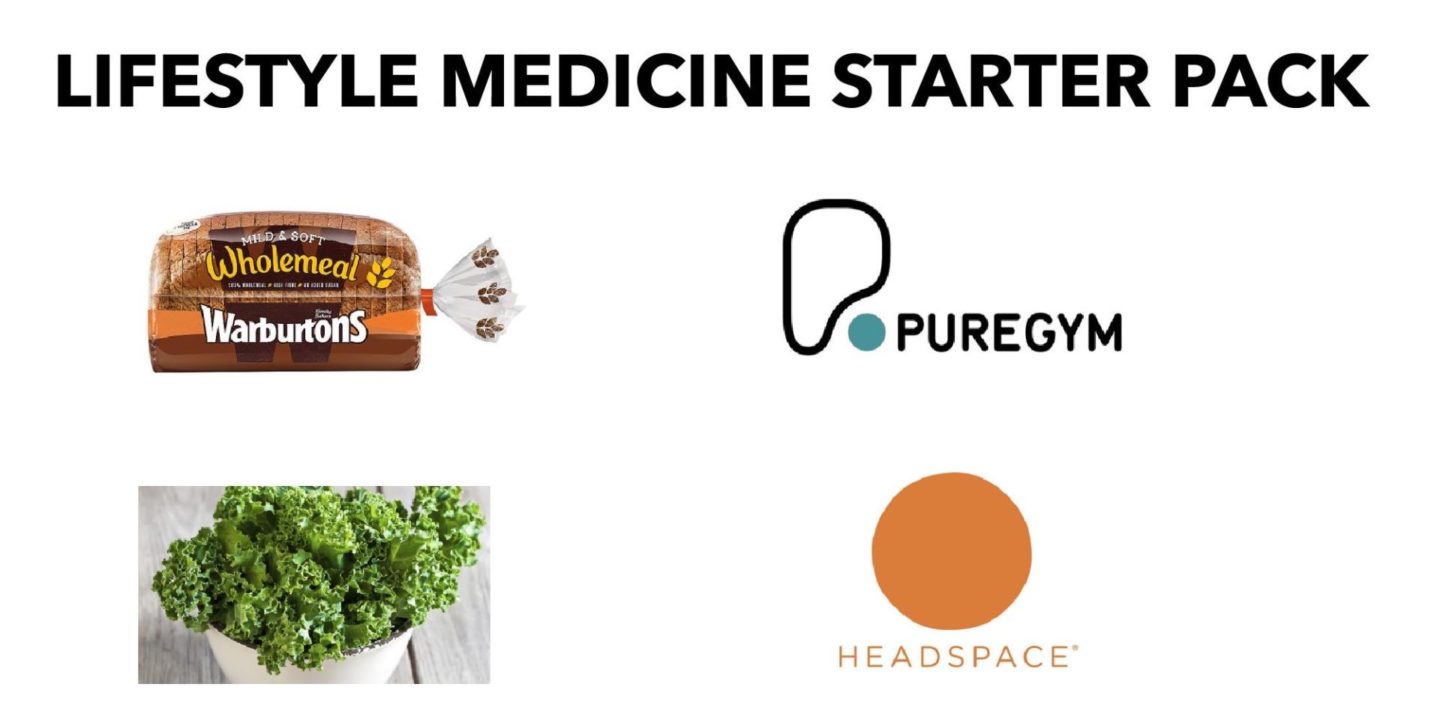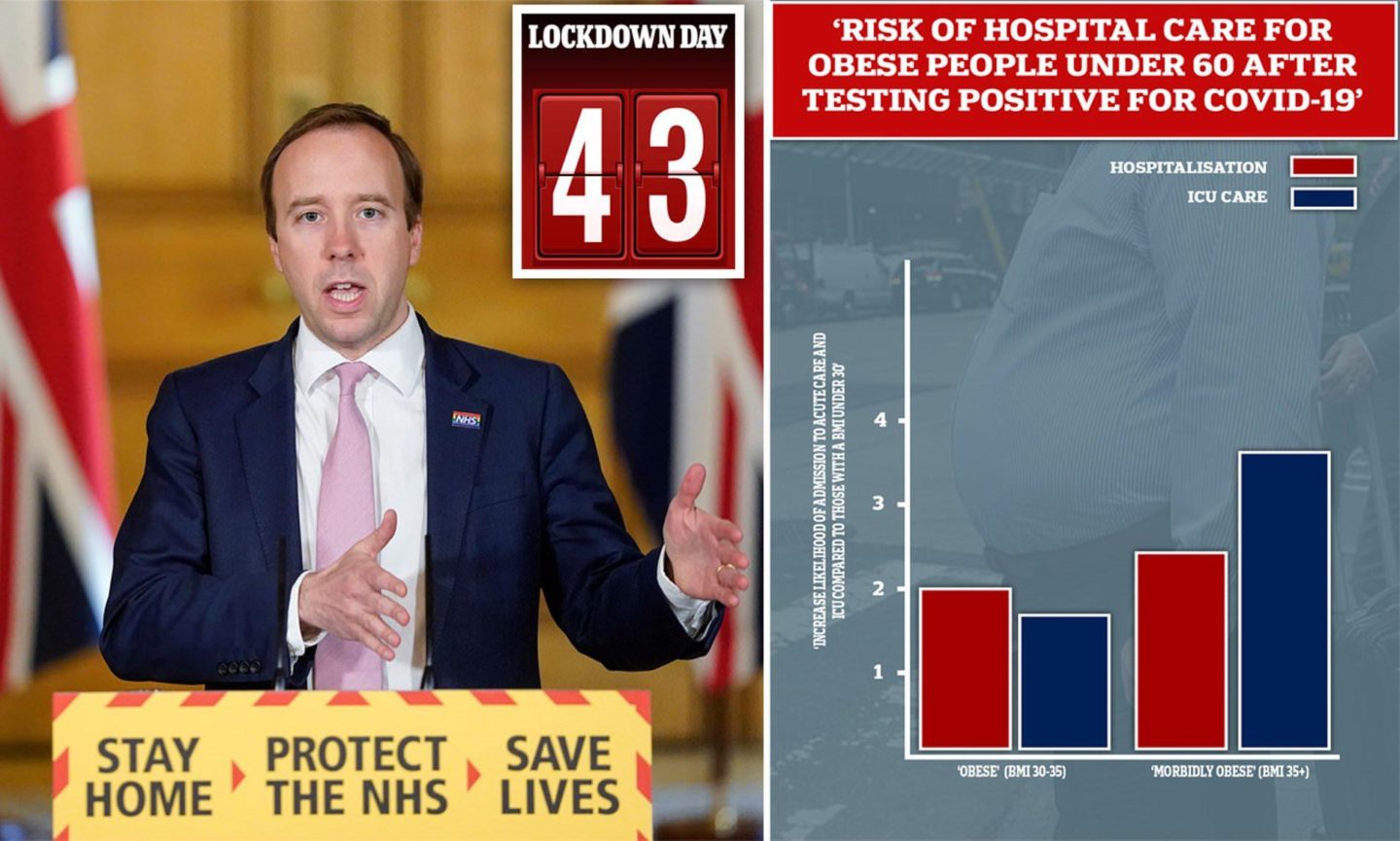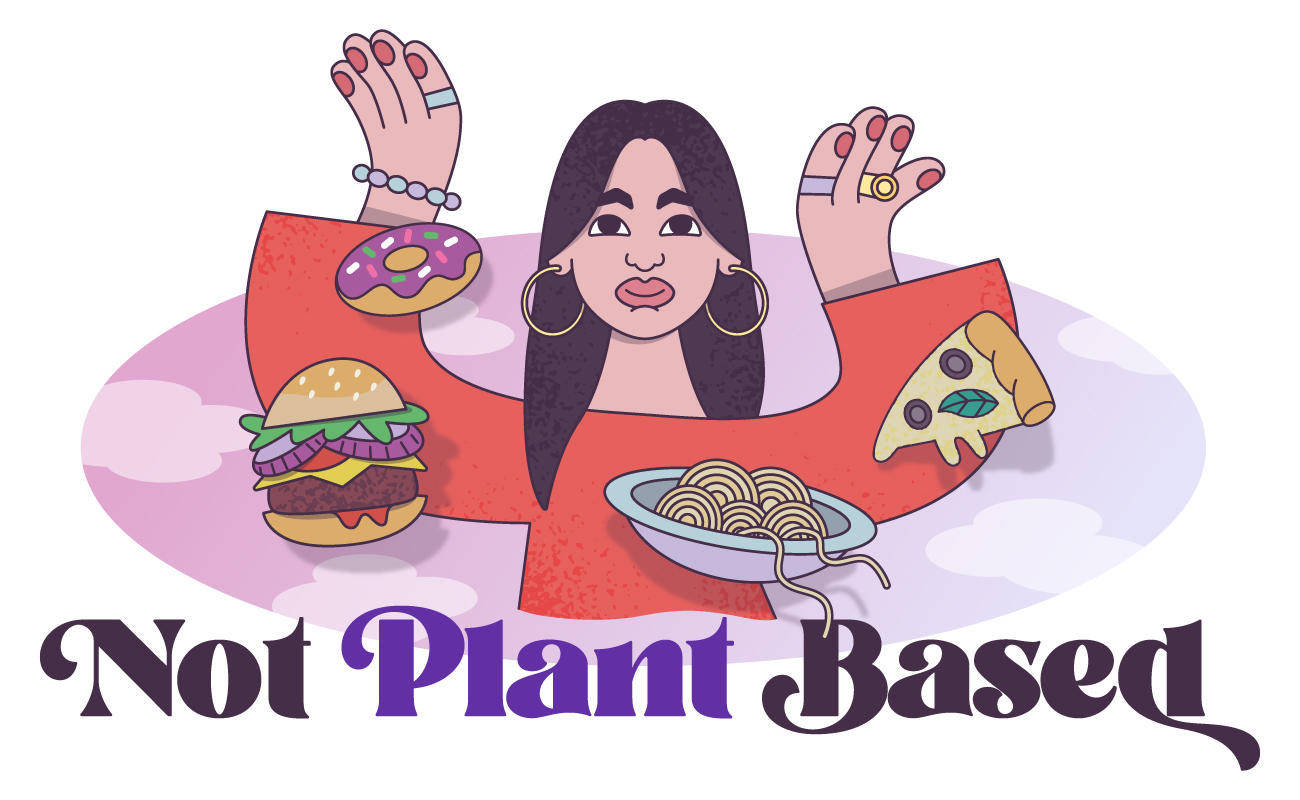
At long last, it looks as though this mammoth apocalyptic nightmare may soon be over. No longer will birthday parties be remembered for poor internet connectivity, supermarket carnations and homemade tiramisu (I appreciate the effort babe but it’s like a decapitated sponge did a wee in my mouth). Instead, we’ll be sharing sex stories over Franco Manca’s four cheese special with the gang (no more than six revelers, please) and clinking our champagne (prosecco) glasses until we get a good boomerang. Then onto a socially distanced pub to chat up the barman, despite the Perspex shield installed to keep you as far away as possible. Happy days. But not, it seems, if you’re stupid, lazy and ignorant enough to be fat. According to a swathe of doctors, these unfortunate citizens must instead embark on an urgent lifestyle overhaul to protect themselves, should Covid-19 peak again. They should be familiar with the figures by now – death from the virus is twice as likely if your BMI creeps about 30, according to studies. It’s their civic duty to lose weight, really, easing the strain on the already stretched NHS.
Anyone reading the countless warnings, in just about every corner of the internet, would be convinced of this. Even the highly prestigious Royal College of GPs hosted a virtual conference entitled: ‘Covid-19, a lifestyle disease and the vital role GPs have in beating it.’ One of the chairs of said conference was GP and former gladiator (!) Dr Zoe Williams, who explained the thinking behind the title in a video posted on Twitter, said: ‘People are at higher risk of a poor outcome if they have type2 diabetes, obesity, heart disease, liver disease and kidney disease and some cancers.’ The conference – which was widely criticised on Twitter – featured advice from ‘leading thinkers’ in the field of lifestyle medicine, touching on subjects such as meditation, sleep and physical activity. Nutrition – usually prominent in such discussions – didn’t feature, despite many lifestyle medics taking to twitter to say, AND DON’T FOGET BIG, BAD ULTRA PROCESSED FOOD, in one way or another.
The statistics are convincing – those with a BMI over 30 are more likely to die in hospital from Covid-19, even when age, ethnicity and gender are accounted for. But – and it’s a bit but – does that the third of British people who fall into this category can avoid a tragic ending by ordering some healthy gusto boxes and doing a Joe Wicks workout? And, more to the point – should they? The answer, of course, is complicated. The group facing a similar increased risk of death, if not higher, is the poor. According to data from the Office for National Statistics, people living in deprived areas were twice as likely to die, compared to the well-off. The list of worst-affected occupations tells a similarly bleak story. Most British deaths were seen in taxi drivers, security guards, cleaners, those working in social care. The average salary for all these jobs is at least £5k shy of the national average salary – £29k, according to the office for national statistics. One thing many of these people will have in common is, sadly, obesity, and its related diseases. Endless studies have shown the entangled relationship between poverty and obesity, for a myriad of reasons. NHS data released last year showed that nearly a third of children in the most deprived areas of the UK are obese, compared to just over a tenth of those in the least destitute regions. This gap in obesity rates between the rich and the poor has almost doubled in the past decade. And research shows that these kids are up to nine times more likely, than children of a healthy weight, to be obese in adulthood.
 Just one of the many widely-circulated infographics highlighting the supposed link between Covid deaths and obesity
Just one of the many widely-circulated infographics highlighting the supposed link between Covid deaths and obesity
Now, I understand that what I am getting at may come across patronising. Poor people can join a gym and cook healthy, delicious vegetable stews too, you know. Of course they can. But is it fair – or realistic – to expect them to? Take Karen*, for instance, who I came across a few years ago whilst researching another piece about poverty and clean eating. Karen lives in South London with three children under six. She’s a single mother who squeezes her care worker shifts in between pick-ups and drop-offs. Her council bungalow has a serious mould problem, so she spends most of her spare minutes on the phone to officials, begging them to rectify the issue. Lunch, therefore, is whatever she can grab on the road that gives her enough energy to get through a day of lifting an 11 stone elderly men in and out of bed. On particularly gruesome days – it’s not uncommon for her to walk in on a client and find them unconscious – she might treat herself to a Toffee Crisp to take the edge off. Two of her children won’t touch vegetables – despite her best efforts. Living pretty much hand to mouth, she must take shifts when she can get them, which often means leaving the children with a neighbour until she arrives home from work, at 7.30pm, exhausted. There is barely time to change out of her vomit-ridden work clothes, let alone scour the internet for lentil stew recipes and stand by a hot stove for hours, stirring. Meals must be convenient, quick and – most importantly – her children must eat them. She can’t afford to chuck a meal in the bin. Her cupboard contain the bare minimum needed to cook something easy, with good value for money – spices are an unnecessary indulgence. Not that she has the headspace to think about what she’d do with them. The most important thing is sitting opposite her children for two hours in the evening, watching them gradually grow up, over a shared a meal. Of course she’d like to exercise and plan nutritious meals for her kids. She’s not stupid, nor a bad mother. But there simply isn’t enough time – or money. Cue the familiar argument: But butternut squash is only £1 in Tescos!!! True. But add the garlic, spices and, even olive oil, needed to turn a manky orange vegetable into something tasty. And allow an hour for roasting. Then, imagine the heartache of watching a toddler mush it up, throw it at the wall and demand a plate of chicken nuggets- which you can’t afford to go out and buy because you’ve spent that day’s food budget on One. Sodding. Butternut. Squash. Fresh vegetables are cheap. But you need a lot of them to total enough calories for three hungry children and an adult woman.
Get it now? The situation for Karen – and hundreds of thousands like her – is not conducive to good health. And it is through no fault of her own. It’s not just about obesity either. According to Professor Nishi Chaturvedi, director of the Medical Research Unit for lifelong health and ageing at University College London, those living in deprived areas, where housing is cheap, are more likely to be exposed to a heavier load of the virus – causing more severe illness. Other reasons why deprivation increases the impact of Covid-19, according to Prof Chaturvedi, include overcrowding, income, employment and disability. And although the studies seem to show that obesity directly equals a host of diseases, the relationship may not be so clear cut. Other factors such as chronic stress and living in high polluted areas are known to increase the risk of heart disease and cancers, independent of obesity. So, whilst pamphlets on ‘eating a rainbow’ and ‘sleep hygiene’ may be well-intentioned, I’m afraid to say, they will not save the lives of people like Karen. Instead, the dogged emphasis on ‘lifestyle’ implies a subtle undercurrent of blame, leaving the less fortunate feeling even shittier about their, already quite shit, situation. Plus, we’ve been wagging the finger at those adopting ‘unhealthy’ lifestyle habits for decades now and, judging by the statistics, it doesn’t seem to be working too well.Perhaps it’s time we tried something different like, oh I don’t know, investing in community services to support single parents, building safe, well-ventilated, affordable housing or guaranteeing a fair, decent salary for those working the jobs that few of us want to. In the meantime, be kind, understanding and compassionate to those who are probably just as aware of their potential Covid-19 death as you are. After all, while the ‘lifestyle’ gurus spout their doctrine from behind their computer screen, their potential patients are out in the firing line of the virus, doing their jobs. hey have no other choice. So allow them a Big Mac and chips and shut up about meditation for a minute.



